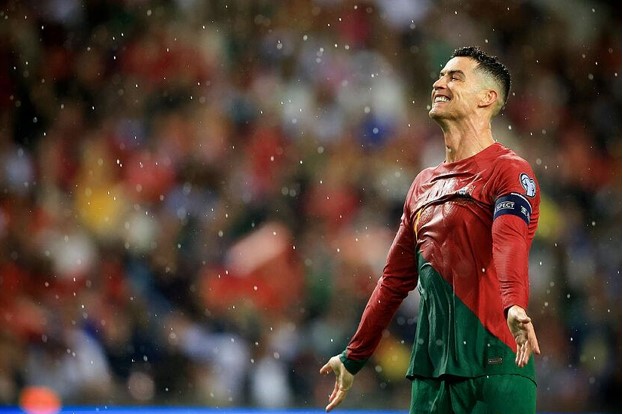 Portugal’s football success is a tale of passion and heritage. The country’s love for the game runs deep, making football a key part of daily life and national identity.
Portugal’s football success is a tale of passion and heritage. The country’s love for the game runs deep, making football a key part of daily life and national identity.
From children playing in the streets to fans filling stadiums, the enthusiasm of the country about its favourite sports can be easily seen.
Historically, Portugal has produced legendary players like Eusébio and Figo, and its clubs, such as Benfica and Porto, have claimed European titles.
One of the most obvious reasons why Portugal is so good at giving us the best footballers is because here it is “the only” sport. There is very little competition with other sports, unlike say Sweden, or Germany, where winter sports are immensely popular as well.
In Portugal, something as trivial as climate allows footballers to play and practice on grass all year long. Children in the streets play football all day long, after school, till it is dark, and they are willing to play in the most unsuitable places, not only on big green fields.
However, there are a couple of other theories on why Portugal is so successful.
The deep-rooted football culture
Football is more than just a game in Portugal; it is a national passion that is present literally in everyone’s everyday life.
The influence of former colonies has also enriched Portuguese football, with talented players like Pepe and Deco from Brazil, Eusébio from Mozambique, and Nani from Cape Verde making significant impacts. The more variety the better and Portugal took advantage of that for sure.
Legends such as Eusébio and Figo have left an indelible mark, inspiring new generations and ensuring Portugal’s remarkable place in football history. Previous success stories fuel the passion of new players willing to preserve their country’s football honour.
It is literally impossible not to be a football fan in Portugal even if you are not into playing yourself. If you don’t play football or don’t go to the stadium to watch a match you are expected to at least watch it online or check the news and be passionate about football; if you are abroad you can make bets on your football team at a no wager casino Canada but never be indifferent about football.
Theory #1: it’s not politically incorrect to be the best
In Portugal, being the best in football is celebrated and admired, and generally being the best is okay and politically correct. Therefore, competition, ambition, and being hard-working thrive and create strong characters and successful players.
This creates a sharp contrast to cultures in some other countries, for example Sweden which is also famous for its footballers but still cannot compete with Portugal. In Sweden, individual achievements and superiority are often downplayed to promote equality. Being called or considered the best is frowned upon when it comes to young players; they are not allowed to keep score until they are 12.
In Portugal, on the other hand, football players and generally athletes are national heroes and their talent is celebrated. This mentality creates outstanding athletes while downplaying one’s natural talent or being hard-working and persistent kills motivation.
Theory #2: the dominance of big clubs and youth investment
Top clubs like FC Porto, Sporting and Benfica invest heavily in their youth academies, focusing on finding and nurturing young talent. They provide high-quality facilities, experienced coaches, and as supportive an environment as possible for the young players.
This investment pays off by developing skilled athletes from a very young and tender age, educating them not only in technical skills, building strength and stamina, and being physically agile but also teaching them competitiveness and other psychological qualities, including working as a team.
In other countries - let’s take Sweden as an example again - football clubs operate under a unique economic model where at least 51% of the club must be owned by its members, preventing private investment.
As a result, Swedish clubs often struggle to secure sufficient funds to invest in their youth academies and develop young talent. This financial limitation impacts the growth and development of clubs overall.
Theory #3: focus on education for coaches
In Portugal, coaching programmes are widely accessible, making it easy for aspiring coaches to start their training. Many district federations offer affordable and extensive courses, ensuring a large pool of qualified coaches. This focus on education has had a significant impact on Portuguese football.
Highly educated coaches like José Mourinho, Sérgio Conceição and Rúben Amorim, and others have contributed heavily to Portugal’s success, bringing advanced tactics and unique strategies to the game. Their personal achievements and qualities were as impactful as those of the players.
For many in Portugal, football is part of their daily lives and if they are not playing, they are free to learn as coaches.
Conclusion
The combined impact of cultural passion, financial commitment, and educational opportunities has positioned Portugal as a powerhouse in football. Funny enough, this combination, as unique as it is, is not something that cannot be borrowed and replicated by other countries.

